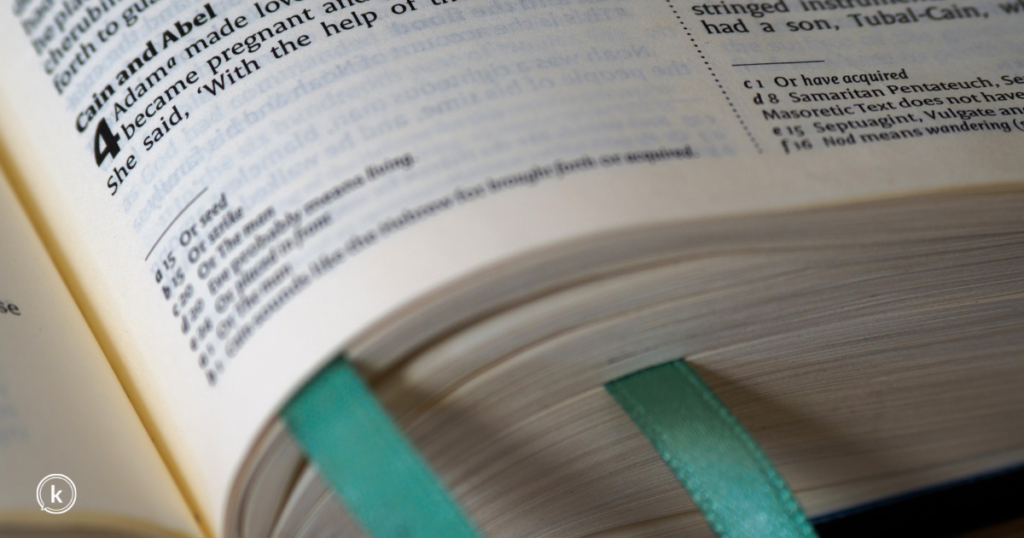Faith
On the other hand…
“You might be immobilized for five or six weeks,” my doctor said.
Ugh.
The possibility of not being able to use of my dominant hand for that length of time struck a chord of fear in this pessimist’s heart.
But my shoulder needed repair so I scheduled it—despite the potential downtime. (I had a similar surgery on my left shoulder about 10 years ago, the hilarious precursor to which I shared here.)
The good news: The surgery is now behind me and I had a better outcome than anticipated—I’m already in rehab.
The bad news: I still don’t have full use of my right/dominant arm.
Read MoreWhen past hurt makes friendship feel scary
He addressed him as “friend.”
“Friend, do what you came to do.” (Matthew 26:50 ESV)
Jesus knew what his friend Judas—one of the close-knit group of disciples—was about to do: betray Him into the hands of His would-be killers. Most of us wouldn’t consider that kind of betrayal a mark of a friend.
Yet Jesus still calls Judas “friend.”
Puzzled by this, I wondered at first if it was just the translation I was reading. Nope, the word “friend” is in every translation I checked.
- Jesus replied, “Do what you came for, friend.” (NIV)
- Jesus said to him, “Friend, why are you here?” (RSV)
- But Jesus said to him, “Friend, why have you come?” (NKJV)
That’s because it’s in the original Greek version. In Greek, the word is ἑταῖρος.
According to Strong’s it means “a comrade:—fellow, friend.” So there’s really no trying to redefine the word the way Jesus used it.
Why does this matter to us?
Read MoreHow to make forgiveness a habit
Habits.
I’ve got some good ones: Flossing. Exercise. Budgeting and bank reconciliations.
And I’ve got some bad ones: Phone pick-ups. Dirty chai lattes. Returning shoes. (I have yet to diagnose the reason behind my lack of ability to commit to a shoe purchase.)
I’m intentional about habit-building. I have regular goal-setting sessions (not just at the beginning of the year) and often ask myself what habits and disciplines I need in order to achieve those goals.
Given this proclivity, it’s easy to see why my ears perked up when someone applied the word “habit” to Matthew 18:21-22.
Read MoreThe painful (and sometimes funny) discovery of blind spots
When the irony fell on us all at the same moment, we dissolved into gales of laughter.
Fourteen of us sat around the conference room table in Chicago. It was an opportunity to gather with colleagues; most of us had never met in person.
On the first morning of our two-day confab, we encircled that table, sharing what we hoped to glean from our time together. I voiced my desire to identify blind spots in my role as a trainer and facilitator; that desire was written on the glass-covered pink wall alongside the hopes expressed by my cohort.
And then we dug into the work: learning, discussing, asking questions, practicing, and receiving feedback. It. Was. Awesome. I am a better trainer because of the insightful comments of my colleagues. Our day’s efforts were rewarded with a hearty meal and an evening outing. My night concluded in a smaller group, waxing philosophical in oversized chairs in the hotel lobby.
When I made it to my room around midnight, I fell into bed exhausted and wholly satisfied.
But sleep didn’t come quickly. My introverted nature got the better of me after a full day of activity. Like an overstimulated toddler who didn’t get to nap on time, my nervous system was in hyperdrive and I laid awake until after 3am.
Read MoreThe other kind of love
Ah, February. The month commonly associated with love because of Valentine’s Day.
The stores flood with food, flowers, and apparel in various shades of red, pink, and chocolate. Oddly, I think it fills more of us with dread than delight: singles feel conspicuous in a culture focused on couples, and those in relationships feel the pressure to meet a social standard for expressing affection—both financially and emotionally.
As Americans, I think we’ve become too focused on romantic love. Perhaps even our church culture has become too myopic about it as well? Affinity groups for couples… sermons on marriage… and more. Please don’t mistake me, if we are married, we should absolutely fortify those relationships through whatever resources we have. Yet an overemphasis on couple-hood creates undue pain for our single friends and—perhaps more importantly—distorts our view of the Body.
Read MoreBreaking bread instead of breaking fellowship
In the coming days (and weeks), many of us will gather with friends or family to share a holiday meal. We’ll put thought into who will encircle the table, extending invitations and setting a time to gather. We’ll put thought into the meal—possibly preparing favorite family recipes. And we might even put thought into what the table itself will look like… A centerpiece? Special plates or utensils? Candles?
But will we put thought into the conversation and the connection?
Or will we leave that to chance?
Read MoreSmall boat, big God: Weathering Life’s Storms
You’ve read the story before, I’m sure…
Jesus instructed His disciples to go to the other side of the lake.
As they traveled, a storm began to rage; waves breaking into the boat.
Jesus was sleeping through it all.
Until they woke Him, asking whether He even cared that they might drown.
His answer? “Why are you afraid?”
Reading this passage a few days ago, I nearly skimmed right over it. It’s familiar.
But I slowed because He nudged me.
What’s here for me, Lord? I know this story already.
Read MoreWhat I learned from writing out the entire book of Genesis
Yes, all 50 chapters of it.
It took 179 pages and 346 days.
I began on June 1, 2020 and wrote out between four and fourteen verses every day. Why? The short answer is that writing Scripture by hand keeps me engaged in a way that my wandering mind won’t always permit. (The long answer is here.)
I have a new appreciation (and respect!) for the scribes who painstakingly wrote out the entire Bible until Gutenberg invented the printing press. But there’s more for us here than just admiration.
Read MoreWhen “new” feels scary and uncertain
I know you’ve experienced them, too: transitions. Stepping into a new job and leaving the old one. Uprooting your household to relocate. Or just entering a new season in life (anyone else watching their nest emptying rapidly?).
All change brings some degree of ambiguity–even if it’s a change we desire. And frankly, uncertainty can be really hard to bear. Transitions are difficult for most everyone… including the people of the Bible. I think Jacob—a forefather of our faith—dealt with it often. His response in a particular instance is instructive for us.
Read MoreSeeing God in the suffering
It’s pretty easy to feel compassion for Joseph. Despite a seeming lack of emotional intelligence (telling his brothers about his prophetic dreams of ruling over them), being sold into slavery by those brothers into an unfamiliar culture, away from everything he knew and loved, seems incredibly unkind.
God absolutely redeemed Joseph’s experiences—using them to preserve His people through a severe famine. But it’s a difficult story to watch unfold on the pages of Scripture. Betrayed by his brothers and sold into slavery. Framed for sexual assault and imprisoned. Helped fellow prisoners only to be forgotten by one of them for two additional years.
Once finally released, his life begins to change direction. Joseph was elevated to an incredibly high position of authority—second only to Pharoah. He ultimately married and had children.
Reading the account of his life, we naturally feel the pain of Joseph’s hardships—and might even feel righteous anger on his behalf. But Joseph didn’t languish in his own pain.
Read More









